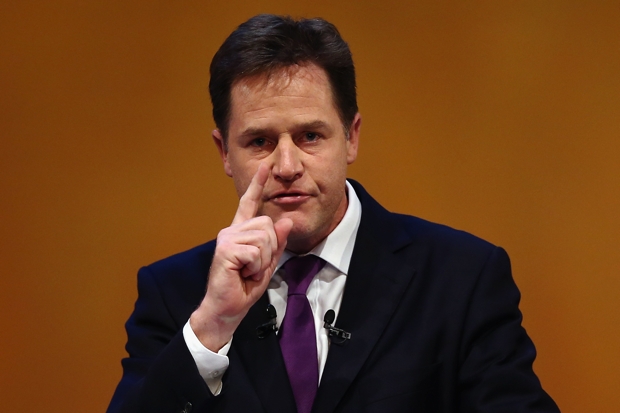One of the most remarkable things about this parliament is how the Liberal Democrats have continued to hold their nerve in the face of truly dire poll ratings. Now, partly this is because the Lib Dems are a cussed lot and don’t want to give the media the satisfaction of seeing them squeal. But it is also because their own extensive seat polling, they’ve spent £350 thousand on it in the last couple of years, makes them confident that they will do better than anyone thinks they will.
Party figures familiar with the polling, present numbers that show them to be competitive in, for example, Cardiff Central; a seat that most people think they have no chance of holding on to. They also point out that when you name all the candidates standing for election in a seat, the Liberal Democrat vote invariably shoots up and that none of the published seat polls ask that question. In several constituencies, this sees the Liberal Democrats go from trailing on voting intention to leading by a comfortable margin.
One thing they have been particularly struck by is their success in winning over under 35s and women between 35 and 55 via targeted leafleting and direct mail. They also keep a very close watch on their target seats, with a weekly review of their performance in each of them by the most senior figures in the party. Any seat that is slipping is put in ‘review’, a three month period in which the local association has to demonstrate why it should continue to receive target seat funding.
But the worry for the Liberal Democrats is that they are being written out of the election script. When Nick Clegg set out the Liberal Democrats’ priorities for a hung parliament last week it received minimal coverage. By contrast, when Nicola Sturgeon reiterated what the Scottish Nationalists would want in these circumstances it set the agenda and led to Ed Balls being questioned on whether he could do a deal with them.
The big question for the Liberal Democrats is whether their strong, targeted local campaigning can, in their own seats, compensate for the negative national environment. Their seat polling suggests that, at least in England and Wales, it might do so in more places than people expect.







Comments